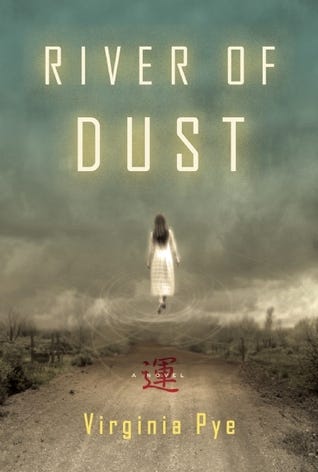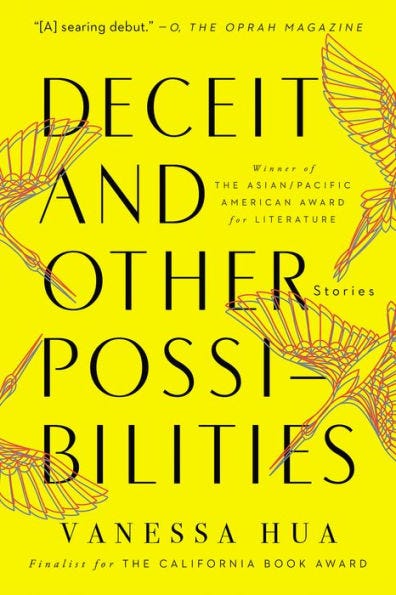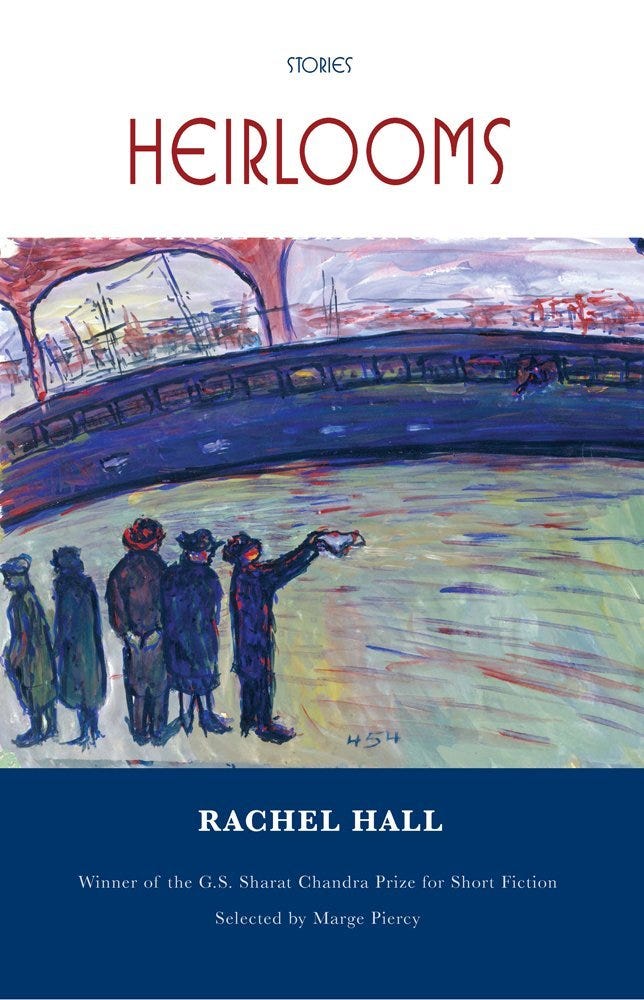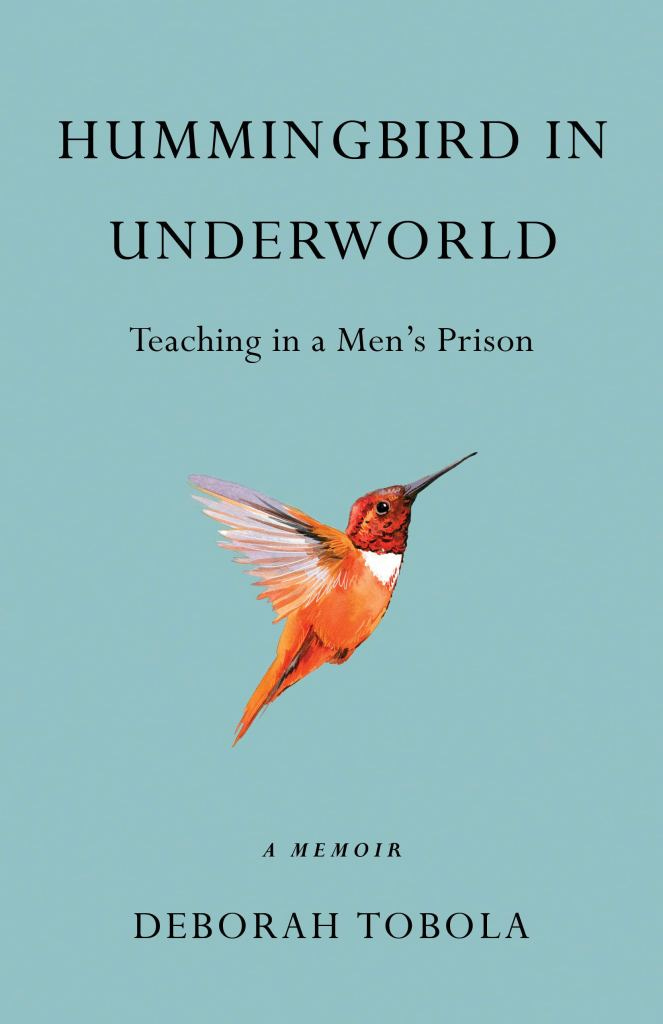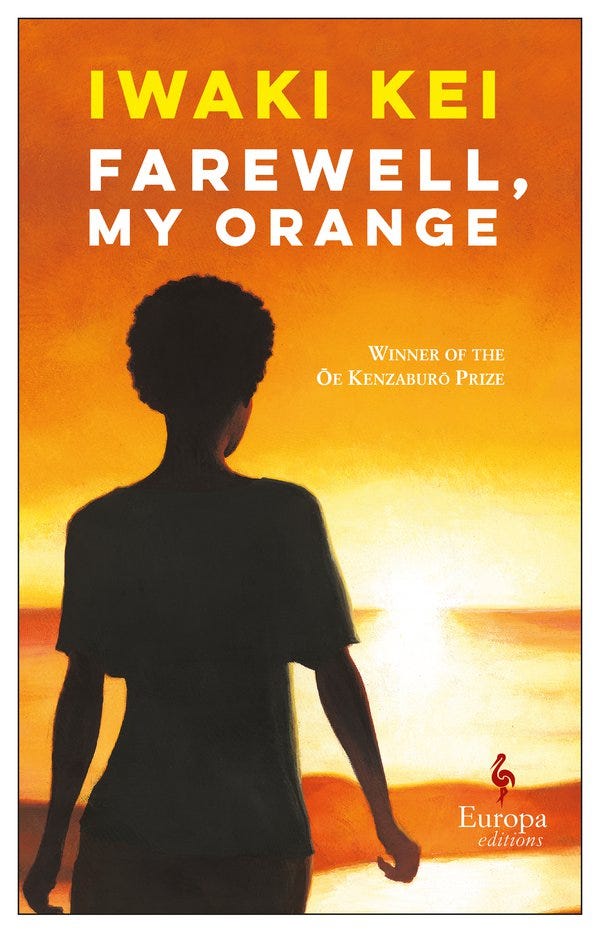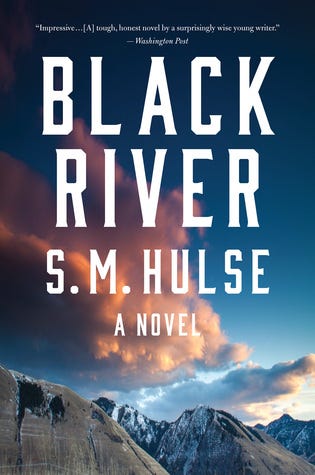Eight stellar back catalog books worth adding to your TBR list
For passionate readers who keep up with the newest releases, it’s always tempting to read the books that are getting all the attention. Of course, that creates a feeling of tension, even guilt, since we all have TBR lists with lots of books released in previous months or years. What to do when you just want to read everything?!
I don't have the answer, unfortunately. (My only suggestion is to bear in mind that those new books aren't going anywhere. You can always read them sometime down the road.) Instead, I'd like to complicate matters by suggesting some books from the past decade that you may have missed and that deserve your attention.
So here are eight back catalog books that are worth your time. I hope you find something here that makes you put off reading that exciting new book for a few weeks or months.
One of the great joys of the reading life is the ability to travel to other times and places, to experience life among other peoples and cultures. Virginia Pye’s River of Dust (Unbridled Books, 2013) though not a joyful novel, offers those pleasures in abundance. River of Dust is a character study of a man of great faith enduring a spiritual crisis, a close examination of the dynamics in a young marriage, a suspenseful missing persons story, and a jaundiced travelogue.
A few years after the Boxer Rebellion of 1898-1900, Reverend John Wesley Watson and his young wife, Grace, have been sent by the church to engage in missionary work in the small Chinese city of Fenchow-fu in the drought-stricken country northwest of Beijing. After making a name for himself building schools, roads, and a hospital, the Reverend (as he is called throughout the book) and Grace, along with their three-year-old son Wesley, move out of the missionary compound to a tumbledown house well outside of town. Before they can even move their bags into the house, a pair of Mongol bandits accosts them and kidnaps Wesley. The compelling plot of River of Dust is thus set in motion. Who are these men, why did they steal Wesley, and what do they want with him?
River of Dust is the story of this young couple’s encounter with a strange nation: its wide range of people, incomprehensible culture, and primitive religious superstitions. Like most imperialists, whether political or religious, the Watsons and their fellow missionaries believe they understand China and its people’s needs and that they can make a difference in their lives. They soon discover that this may not be the case. China is far more complex than they had imagined. As with most “first contact” stories, despite good intentions, both sides have much to learn about each other and gain insight only through painful experiences. Sometimes the target culture proves impervious to outside influence and instead works changes upon the visitor. In the end, both the Reverend and Grace discover that they are different people than they thought they were.
Vanessa Hua received a lot of acclaim for her debut novel, A River of Stars (2018). But I first heard of her when Deceit and Other Possibilities received an Asian/Pacific American Award in Literature and was a finalist for a California Book Award in 2016. It was reissued in 2020 by Counterpoint Press with new stories.
These 13 stories concern characters struggling with their immigrant identity and resulting life choices: an elderly immigrant from Chinatown forced to return home after 50 years (“The Older the Ginger”); a Korean-American teen who finds an unusual way to become a student at Stanford in order to satisfy his ambitious parents (“Accepted”); a young Chinese-American celebrity from Hong Kong who returns to Oakland following a sex scandal (“Line, Please”); a Korean-American pastor doing missionary work in East Africa whose intentions are not as good as they seem (“The Deal”); and a Mexican immigrant boy whose parents are torn between the present and a possible future (“What We Have is What We Need”).
Hua is a masterful writer. Her stories feature a finely-honed sense of characterization, an ear for realistically quirky dialogue, and a direct, occasionally acerbic tone that doesn’t completely hide her sympathy for these very human characters.
I love short story collections, particularly the increasingly popular genre of linked stories that move a collection into quasi-novel territory. Heirlooms (BkMk Press at UMKC, 2016) flew under my radar, most likely because it was published by a university press, but it absolutely deserves a wider audience. Rachel Hall has used her family history as a springboard to a series of stories that follow four generations of a family from 1939 to 1989 and from France to Israel and the United States.
Hall writes with sensitivity and a clear-eyed insight about the issues of familial, community, and national loyalty and duty, as well as faith and forgiveness, and loss and survival. Heirlooms is particularly relevant in its depiction of the fraught experiences of refugees and immigrants. The cumulative effect of reading these stories is akin to completing a puzzle. Sections reveal specific issues and experiences, but when the entire puzzle is finished, the result is something larger and more memorable. The title story is especially heartbreaking. The narrator details what the family is leaving behind as they depart France for the U.S. Furniture, of course. Clothes, personal belongings and mementos – simply too much to bring. But also family members buried across France, their friends, their language, and even strong, flavorful cigarettes.
It’s not difficult to see why Heirlooms won the G.S. Sharat Chandra Prize for Short Fiction, judged by Marge Piercy. It’s a compelling and memorable collection.
Hummingbird in Underworld (She Writes Press, 2019) introduces us to Deborah Tobola, who has spent many years teaching in California prisons. She focuses on her experiences at the California Men’s Colony in San Luis Obispo, which is considered something of a resort among the state’s prisons. Tobola is hired to run the Arts in Corrections program, teaching literature, writing, and theater to the inmates. In an interesting coincidence, she had been born in SLO 45 years earlier when her father worked at the CMC but had led a peripatetic life, going to college in Montana and Arizona and working in Alaska before returning to the Central Coast.
Tobola’s memoir weaves two strands together effectively: her time at CMC and her unusually unsettled upbringing. Her father’s side of the family came from Bohemia (think Czechs), and she was in some ways raised as one of the boys by her father and uncles, a group of opinionated, rough-edged union men. While her two sisters were seen as “pretty girls” and were raised in constrained roles by their beautiful mother, Deb was a bookish, independent, and unorthodox young woman. The men viewed her with a mix of suspicion and grudging respect. Her family life would have made for a compelling memoir on its own, but it works well here as the foundation for her later life as a bohemian and as context for her work teaching prisoners.
Most of us have very little idea of what life is like inside a prison, and Tobola does us a service by showing us the difficulties and dilemmas faced by prisoners and staff alike. We meet a memorable cast of characters in her classes, some of whom have backgrounds that make one wonder why Tobola would risk being in close contact with them. But that’s the heart of the story: Underneath her tough exterior, she has a gifted and inspiring teacher’s idealism and empathy, and she believes that the arts can save one’s soul and free one’s mind, a valuable gift when one’s body is locked up for years, even decades.
The Buddha Sat Right Here (She Writes Press, 2019) tells the story of a Northern California nurse-midwife who, with her husband Adam and two young daughters, decides to take a year off to travel across India. Their goal is to get off the “hamster wheel” and experience India’s culture as more than just tourists. While both Dena and Adam were raised Jewish, they’d become practicing Buddhists. Moes became intrigued by the idea of immersing her family in Indian life when she visited her older sister, Amy, a foreign correspondent in New Delhi. So in 2014, they set off on what becomes a spiritual journey, a cultural exploration, and the family odyssey of the title.
What makes Moes’ memoir stand out is the quality of her writing. Her narrative gift makes Buddha read like a fast-paced novel rather than a navel-gazing interior travelogue. It’s a family adventure story that is by turns funny, informative, and heartwarming. It’s a cliché, but you really do feel like you’re on the journey with them, and you never know what is going to happen next because, well, it’s India, a country that contains multitudes in every sense of the word. Moes earned a BA in Literature at Yale before getting an MS in Nursing, and it shows. She is a terrific writer, and this is an absorbing and satisfying memoir.
Helen Benedict has carved out a niche as the preeminent writer of women at war in the Middle East and back home. Sand Queen depicted the brutal experiences of a female soldier in Iraq. Wolf Season (Bellevue Literary Press, 2017) takes a wider view, following the lives of three very different woman in a small town in upstate New York.
Naema, whom we first met as an Iraqi medical student in Sand Queen, is now a widowed refugee doctor working in a VA clinic. Rin is an Iraq War veteran living on an isolated compound in the woods with her blind daughter. And Beth is struggling to hold down the home front with her troubled son while her husband is deployed in Afghanistan. The lives of these very different women slowly become intertwined in both expected and unexpected ways.
Benedict writes with a fierce intelligence suited to the subject matter, and with a deep compassion for these three good women fighting battles at home. She has done readers a great service by helping us to see aspects of this 18-year-long war that we might otherwise overlook and by asking important and uncomfortable questions about the true costs of war. Wolf Season has haunted me since I read it over a year ago.
Farewell, My Orange (Europa Editions, 2018) is a gem of a novella that should be required reading. Set in a tiny town on the Australian coast, it tells the story of two recent immigrants: Salimah, who fled Nigeria, and Sayuri, who has accompanied her husband from Japan while he completes his graduate studies. Salimah’s husband has abandoned her and their two young sons in a country where she knows no one, can barely speak the language, and is in a state of culture shock. Sayuri has postponed her own graduate studies and spends her days caring for her baby daughter.
The two young women meet in an English as a Second Language class attended by students from several countries, with widely varying English skills. Over time, Sayuri begins to help Salimah with her English work. Despite their completely different life experiences, they share a shy but tenacious nature, and one of the many pleasures of Farewell, My Orange is watching them develop a friendship through a second language neither is comfortable with. The story alternates between a close third-person narrative following Salimah and letters written by Sayuri to her professor. Salimah’s story gives us an intimate view of the immigrant experience, focusing on the key role language plays in adapting to a new country and culture. Sayuri’s letters are both personal and observational, giving us an almost journalistic view of her experience.
Slowly, these two women, often gritting their teeth, find their way into the English language and the Australian culture. Farewell, My Orange allows the reader to experience their struggles to build a new life with a new language. And the conclusion offers a few surprises that explain some quirks of the narrative.
Writers have been exploring the people of the West for a very long time, but it seems as if there is more good fiction capturing this powerful sense of place than ever. S.M. Hulse’s debut, Black River (HMH, 2015), tells of the crisis faced by the protagonist, Wes Carver, when he is forced to return to the tiny town of Black River, Montana following the death of his beloved wife Claire, who expressed a wish to have her ashes spread there. Carver grew up in Black River and followed the men of his family into a career as a correctional officer. But he and Claire left 18 years earlier after a prison riot in which he was held captive for two days by Bobby Williams, a sadist who tortured Carver and left him with crippled hands, forcing Carver to retire and give up his passion for playing the fiddle.
Carver is reluctant to return because two people await him, neither of whom he has wanted to face for many years. He has received a letter notifying him of a parole hearing for Williams, who claims to have found Christ. Carver is determined to prevent Williams from seeing daylight. But the more complex situation involves his relationship with Claire’s son, Dennis, whom they left behind as an especially rebellious and independent 16-year-old. He and Carver have hardly spoken since then. But Claire’s death has forced them to face each other.
Hulse weaves together the various conflicts convincingly. And although we spend a lot of time in the head of the introverted Carver, the plot moves along as steadily as the river at the heart of the novel. Hulse’s writing is spare but poetic, and her western Montana setting is a character that looms over the story’s events. Readers will find Carver’s search for redemption a compelling and illuminating journey.



